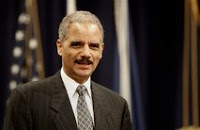
New Illinois Democrat Governor Patrick Quinn was a guest this evening on
WGN Radio's Extension 720 interview show (
link), hosted for decades by the incomparable Milt Rosenberg, a sociology professor at the University of Chicago. Quinn is from
Hinsdale in suburban Chicago and is a graduate of
Fenwick High School in Oak Park, Georgetown, and Northwestern Law School.
He came across as engaging, intelligent, and studied. He quoted or referenced, among others, Abraham Lincoln, both Roosevelts, Marquette & Joliet, former Governors Altgeld and Horner, Mark Twain, and Winston Churchill. He has politically been seen as a populist, a maverick to some, who in his career has stressed ethics and fiscal responsibility.
Quinn and Rosenberg related how Quinn first appeared on the show in the 1970s when he was a leader of an effort to prevent Illinois legislators from drawing a year's salary in advance on the first day of a session. Appearing in the gallery of the Legislature shortly after that reform was enacted, Quinn described receiving a standing "boo-vation" from angry legislators.
Many topics were discussed in brief, and there was the inevitable inane question or two from callers.
On taxes: Rosenberg read a long statement and question from John Tillman and others of the free-market Illinois Policy Institute (
link) which recited Illinois' low ranking on a number of indicators of state economic well-being (e.g.: 47
th in job creation since 1977; since 1988, spending per
capita is up 45% inflation-adjusted, but population has grown only 4%; 44
th in GDP growth over the past 10 years); the Institute asked "will you take any and all tax increases off the table" and "focus on the spending side to stop the economic decline?" Quinn acknowledged Illinois' enormous budget deficit ("Illinois has $9 billion in unpaid bills") and in so many words said that in his opinion this requires a tax hike. He then said that he feels regressive taxes are unfair, that taxes should in some way be proportional to ability to pay. Since the Illinois state income tax is a flat tax, i.e., not progressive, as is the sales tax, I'm not sure what that all means for a Quinn approach on tax increases. I can't imagine a corporate tax hike. He said he is studying all options now and will announce his plan in a few weeks. Although the Democrats have large majorities in both state legislative houses, in light of the recession and the incomprehensible Democrat federal spending plans I cannot see state Democrats trying to abandon the flat income tax system to switch to a progressive one.
Rosenberg asked Quinn for his explanation of the dismal state indicators cited by the Illinois Policy Institute. Quinn's response was "jobs follow brain power" and that we need more focus on education and a "culture of lifelong learning." He didn't mention long-standing political corruption, corporate tax burden, and heavy unionization.
On the subject of education, Rosenberg criticized the "sinking" public schools [implicitly speaking mostly of city schools] and the deleterious effect of the teachers' unions, and endorsed support for vouchers that would provide a private alternative for lower income students. Although acknowledging that he and his children were educated in private schools, Quinn avoided any agreement with any criticism of teachers' unions and stated that he does not support vouchers because he believes in "strong public schools for everyone." Of course teachers are one of the largest, if not the largest, constituency of the Democrat party, and Quinn will not cross that line.
Quinn reiterated his call for Senator Burris to resign and his support for a special election for the seat. In discussing the Blagojevich scandal, he bemoaned the self-service motivation of some and said politicians must be motivated only by public service, saying "service to others is the rent we pay for our place on God's earth."
Quinn has always had an image of frugality, not a bad thing in a politician with the power to spend our money. For business cards, he is using up those that say "Lieutenant Governor" -- he just crosses out the word 'Lieutenant", a practice which he jokingly referred to as "the ultimate in recyclability and sustainability."
As engaging and refreshing as Quinn is, it is very disappointing to hear him talk of tax increases rather than the budget cuts and corporate tax cuts that would really stimulate long term job growth and economic revitalization.
J Greco
 New Illinois Democrat Governor Patrick Quinn was a guest this evening on WGN Radio's Extension 720 interview show (link), hosted for decades by the incomparable Milt Rosenberg, a sociology professor at the University of Chicago. Quinn is from Hinsdale in suburban Chicago and is a graduate of Fenwick High School in Oak Park, Georgetown, and Northwestern Law School.
New Illinois Democrat Governor Patrick Quinn was a guest this evening on WGN Radio's Extension 720 interview show (link), hosted for decades by the incomparable Milt Rosenberg, a sociology professor at the University of Chicago. Quinn is from Hinsdale in suburban Chicago and is a graduate of Fenwick High School in Oak Park, Georgetown, and Northwestern Law School.



















